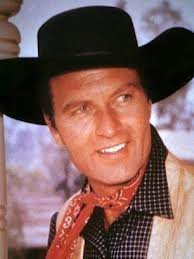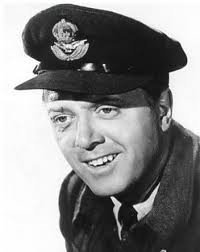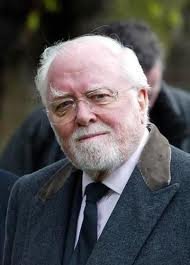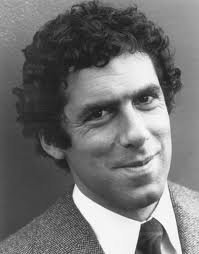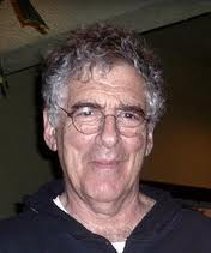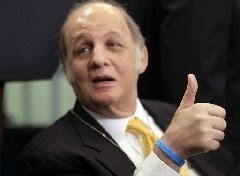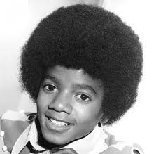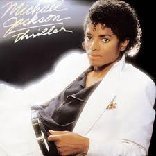Marion Robert Morrison (May 26, 1907 – June 11, 1979), known professionally as John Wayne and nicknamed Duke, was an American actor and filmmaker who became a popular icon through his starring roles in films made during Hollywood’s Golden Age, especially in Western and war movies. His career flourished from the silent era of the 1920s through the American New Wave, as he appeared in a total of 179 film and television productions. He was among the top box office draws for three decades, and he appeared with many other important Hollywood stars of his era. In 1999, the American Film Institute selected Wayne as one of the greatest male stars of classic American cinema.
Wayne was born in Winterset, Iowa, but grew up in Southern California. He lost a football scholarship to the University of Southern California as a result of a bodysurfing accident, and began working for the Fox Film Corporation. He appeared mostly in small parts, but his first leading role came in Raoul Walsh's Western The Big Trail (1930), an early widescreen film epic which was a box-office failure. He played leading roles in numerous B movies during the 1930s, most of them also Westerns, without becoming a major name. It was John Ford's Stagecoach (1939) that made Wayne a mainstream star, and he starred in 142 motion pictures altogether. According to one biographer, "John Wayne personified for millions the nation's frontier heritage."
Wayne's father, Clyde Leonard Morrison (1884–1937), was the son of American Civil War veteran Marion Mitchell Morrison (1845–1915). Wayne's mother, the former Mary "Molly" Alberta Brown (1885–1970), was from Lancaster County, Nebraska. Wayne had Scottish, English and Irish ancestry. His great-great grandfather Robert Morrison (b. 1782) left County Antrim, Ireland with his mother arriving in New York in 1799 eventually settling in Adams County, Ohio. The Morrisons were originally from the Isle of Lewis in the Outer Hebrides, Scotland. He was raised Presbyterian.
Wayne's family moved to Palmdale, California, and then in 1916 to Glendale at 404 Isabel Street, where his father worked as a pharmacist. He attended Glendale Union High School where he performed well in both sports and academics. Wayne was part of his high school's football team and its debating team. He was also the President of the Latin Society and contributed to the school's newspaper sports column.
A local fireman at the station on his route to school in Glendale started calling him "Little Duke" because he never went anywhere without his huge Airedale Terrier, Duke. He preferred "Duke" to "Marion", and the nickname stuck. Wayne attended Wilson Middle School in Glendale. As a teen, he worked in an ice cream shop for a man who shod horses for Hollywood studios. He was also active as a member of the Order of DeMolay. He played football for the 1924 league champion Glendale High School team.
Although he enrolled in a cancer vaccine study in an attempt to ward off the disease, Wayne died of stomach cancer on June 11, 1979, at the UCLA Medical Center. He was buried in the Pacific View Memorial Park Cemetery in Corona del Mar, Newport Beach.
According to his son Patrick and his grandson Matthew Muñoz, who was a priest in the California Diocese of Orange, Wayne converted to Roman Catholicism shortly before his death. He requested that his tombstone read "Feo, Fuerte y Formal", a Spanish epitaph Wayne described as meaning "ugly, strong, and dignified". His grave, which was unmarked for 20 years, has been marked since 1999
Due to his status as the highest-profile Republican star in Hollywood, wealthy Texas Republican Party backers asked Wayne to run for national office in 1968, like his friend and fellow actor Senator George Murphy. He declined, joking that he did not believe the public would seriously consider an actor in the White House. Instead, he supported his friend Ronald Reagan's campaigns for Governor of California in 1966 and 1970. He was asked to be the running mate for Democratic Alabama Governor George Wallace in 1968, but he immediately rejected the offer and actively campaigned for Richard Nixon; Wayne addressed the 1968 Republican National Convention on its opening day.
Wayne was married three times and divorced twice. His three wives included one of Spanish American descent, Josephine Alicia Saenz, and two from Latin America, Esperanza Baur, and Pilar Pallete.
He had four children with Josephine: Michael Wayne (November 23, 1934 – April 2, 2003), Mary Antonia "Toni" Wayne LaCava (February 25, 1936 – December 6, 2000), Patrick Wayne (born July 15, 1939), and Melinda Wayne Munoz (born December 3, 1940). He had three more children with Pilar: Aissa Wayne (born March 31, 1956), John Ethan Wayne (born February 22, 1962), and Marisa Wayne (born February 22, 1966).
He was a Freemason, a Master Mason in Marion McDaniel Lodge No. 56 F&AM, in Tucson, Arizona. He became a 32nd Degree Scottish Rite Mason and later joined the Al Malaikah Shrine Temple in Los Angeles. He became a member of the York Rite.
To read more, go here:
https://www.looper.com/452280/things-you-didnt-know-about-john-wayne/
When my Jerry was born his mom wanted to name him John Wayne Maxwell. His father said "no", so they named him Jerry Wayne Maxwell! 
Get ready for a good ol' country casserole that'll fill the hungriest of bellies. Our Hillbilly Pasta Bake is a cinch to make and won't break the bank!
- 1 pound ground beef
- 1 cup chopped onion
- 1 green bell pepper, chopped
- 1 teaspoon salt
- 1/2 teaspoon black pepper
- 2 (10-3/4-ounce) cans tomato soup
- 1 (8-1/2-ounce) can cream-style corn
- 1 (16-ounce) package processed cheese spread, cut into cubes
- 1 (16-ounce) package elbow macaroni, cooked according to package directions
- Preheat oven to 350º. Coat a casserole dish with cooking spray.
- In a soup pot over medium-high heat, cook ground beef, onion, green pepper, salt, and pepper 6 to 8 minutes, or until beef is no longer pink. Stir in remaining ingredients including macaroni; mix well. Pour into prepared casserole dish and cover with foil.
- Bake 45 minutes, then uncover and continue baking 10 minutes, or until bubbly and hot in center.
Chop Suey Stories....
A prime example of culinary mythology. ~ Alan Davidson on the origin of chop suey.









